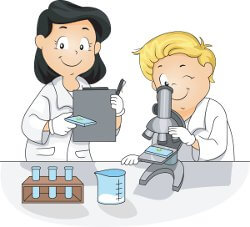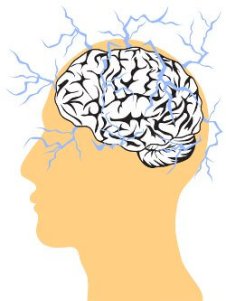The Differences between
Medical Diseases and
Psychiatric Disorders
Medical diseases and psychiatric disorders are not the same thing.
Click Here for Step-by-Step Rules, Stories and Exercises to Practice All English Tenses
To help you understand the differences, let's take a look at definitions and examples of each of these terms.
Medical Diseases
A medical disease is a condition in which part of the body is not working normally.A medical disease can affect any body part, organ, or system.
Medical diseases, such as diabetes or cancer, can be diagnosed with tests:
- blood tests
- x-rays

- lab tests
To help you understand, let's look at diabetes.
Diabetes is a real medical disease. People who have diabetes have too much glucose (sugar) in their blood.
Diabetes symptoms may include:
- increased thirst
- extreme hunger
- unexplained weight loss
- blurred vision
- fatigue
- frequent infections
These blood tests can determine if a patient suffers from diabetes, a real medical disease. After the diagnosis, doctors can recommend treatment, which may include prescription drugs.
Psychiatric Disorders
Psychiatric disorders, or mental illnesses, cannot be diagnosed with any type of medical test.
Psychiatric disorders are diagnosed by a psychiatrist or doctor who:
- examines a
person's behaviors, actions, and moods (sometimes the examination only
takes a few minutes)
- compares their observations with a checklist
for determining specific
psychiatric disorders, such as Attention Deficit Hyperactivity Disorder
(ADHD) or depression
- decides on the most appropriate disorder
- prescribes drugs to "treat" it
To illustrate this idea, let's look at a typical child you might find in a grade school classroom.
Teachers and parents complain that this child:
- does not pay attention in class
- moves around a lot in his seat
- is easily distracted
- talks too much
- fails to finish homework and chores
It actually sounds like this child is simply highly energetic and/or bored with school activities.
Maybe he does not understand the lessons. What do YOU do when you are bored, or do not understand the discussion?
After listening to these "symptoms" and checking them against a series of checklists, a psychiatrist or doctor can label this child with ADHD. This child will probably be prescribed highly dangerous drugs to "treat" the symptoms.
Psychiatrists and doctors make these diagnoses without any blood tests, lab tests, or x-rays to confirm the presence of a physical "disease."

Chemical
imbalance?
Psychiatrists generally claim that psychiatric disorders are caused by
a
chemical imbalance in the brain and that drugs will fight or correct
that imbalance. Unlike a medical disease, there is no test to prove this theory.
(This does not stop it from being extremely popular, though. Unfortunately, "popular" does not equal "proven" or "true.")
Psychiatrists use the term "chemical imbalance" to justify treating patients with drugs.
Summary
| Medical Disease | Psychiatric "Disorder" |
| Includes diseases such as diabetes, cancer, heart disease, and allergies | Includes "disorders" such as ADHD, bipolar disorder, anxiety disorder, and depression |
| A condition in which a body part, organ, or system is not functioning normally | Undesirable behaviors and emotions blamed on a "chemical imbalance" in the brain |
| Doctors can use blood tests, x-rays, and lab tests to isolate causes | There are no medical tests to determine causes |
| We can treat the disease by taking care of the causes | The cause is not treated Symptoms are covered up with dangerous drugs |
To read more:
Real Disease vs. Mental DisorderWas Your Child Labeled with a Mental Disorder? Advice for Parents
Psychostimulants, Facts for Teachers
Alternatives to Psychiatric Drugs
Get Updates, Special Offers, and English Resources
Download your FREE GIFT (the first two chapters of
English Short Stories Book and Workbook)
as soon as you join!

By submitting your email, you consent to receiving updates and newsletters from us and to the sharing of your personal data with third parties for the purposes of sending you communications. We will not spam you. You can unsubscribe at any time. For more information, please see our privacy policy.






